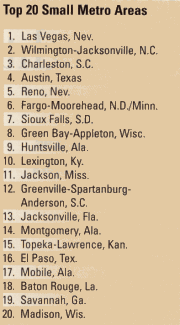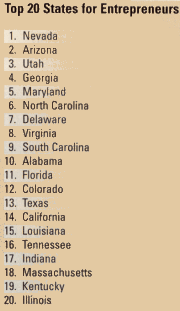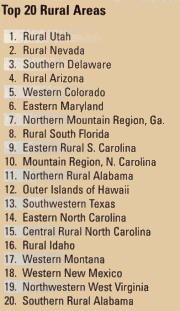|
estern states are proving to be a natural habitat for gazelles, according to some recent research — not zoological research, but rather location research from Cognetics (www.cogonline.com), a Waltham, Mass.-based consultancy.
Gazelles are rapidly growing, publicly traded companies whose revenues have grown at an average annual compound rate of 20 percent or more during the last four years. The term is attributed to David Birch, founder of Cognetics, which has just released its “Entrepreneurial Hot Spots: The Best Places in America to Start and Grow a Company, 2001” research.
The report reveals which locations are most favored by entrepreneurs who are starting or growing a business. It ranks locations according to five categories: the nine U.S. Census regions, states, the 50 largest metro areas, the top 25 small metro areas and the top 25 rural areas.
“Some of the patterns are interesting to watch over time,” says Birch. “Louisville, Kentucky was down at the bottom of the list when we first started thinking about this, and it’s up in the top 10 now. That was the result of a conscious decision on the part of the community to change itself.”
|
 
 
|

The key determinants influencing location choices are universities, a skilled labor pool, airports, quality of life and positive entrepreneurial climate. Western states and cities seem to fit the bill. The South and Southeast are strong contenders as well. Of the nine Census regions analyzed, the Mountain and South Atlantic regions scored highest.






